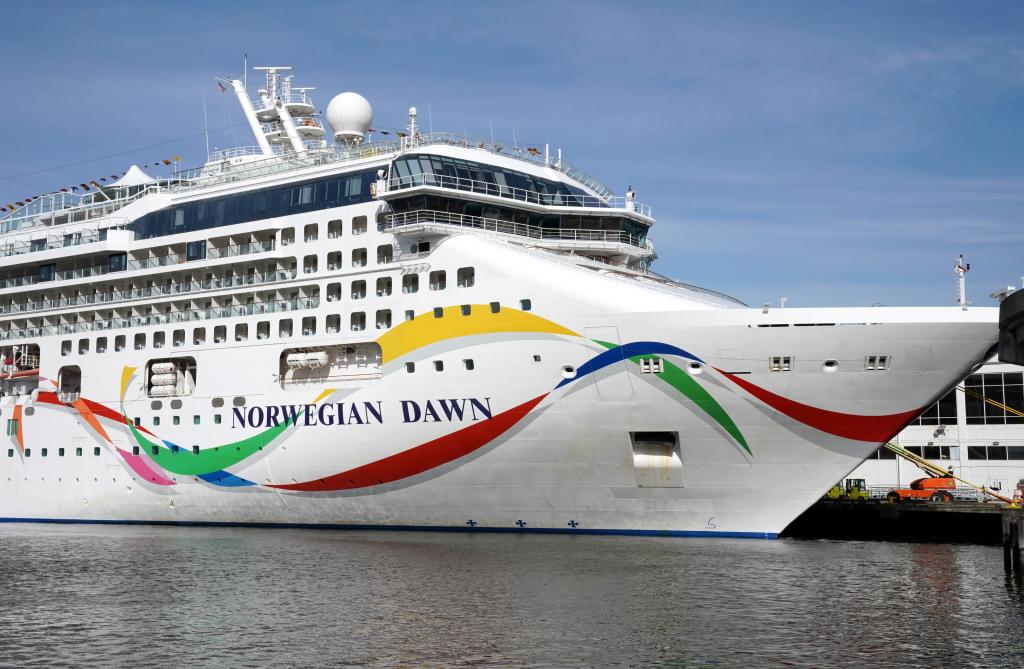Six Americans and two Australian passengers were stranded on an African island after missing the departure time of a Norwegian Cruise Line ship by over an hour. The company explained that the passengers’ passports were left with a local port agent as per protocol, and they were expected to retrieve them upon returning from their private tour. The passengers, including a pregnant woman and elderly man with a heart condition, claimed they were left behind without money and vital medications when the ship left São Tomé without them.
The South Carolina couple, Jill and Jay Campbell, admitted there was an issue with their tour of the island, noting that the guide did not get them back to the ship on time. Despite being assured they could return within an hour, the Campbells found the ship still anchored when they arrived. The skipper reportedly refused to let them board, prompting the couple to criticize the rigidity of the ship’s guidelines. The company stated that after the passengers missed the all-aboard time, efforts were made to help them obtain the necessary visas to rejoin the ship at the next available port.
Attorney James Diamond emphasized that once a final call has been made, a ship has the right to leave, even if passengers are still onshore. He explained that cruise ships have specific departure times due to docking fees and scheduling constraints. While he acknowledged the moral ambiguity of leaving passengers behind, Diamond stated that cruise lines are well within their rights to depart according to their published schedules. Despite the passengers’ unfortunate situation, they were able to make it to Dakar, Senegal, after navigating through seven different countries in 48 hours to rejoin the cruise ship.
The incident raised questions about the responsibility of passengers and tour operators to adhere to the timelines set by cruise lines. While the Campbells and other stranded passengers were eventually able to rejoin the ship, the situation highlighted the importance of communication and time management when participating in shore excursions during a cruise. The company’s adherence to established procedures was criticized by the passengers, who felt they should have been allowed to board the ship when they arrived late. Though cruise lines have strict departure policies, incidents like this raise important ethical and logistical considerations for both passengers and cruise companies going forward.
As the story gained attention, it served as a cautionary tale for travelers embarking on cruise vacations and participating in off-ship excursions. The passengers’ experience shed light on the potential consequences of missing departure times and the challenges that can arise when trying to rejoin a cruise ship after being left behind. While the passengers were ultimately able to reunite with the ship, the incident sparked discussions about passenger accountability, tour operator responsibilities, and the cruise industry’s policies on departure procedures. Overall, the situation underscored the importance of adhering to schedules and ensuring clear communication between passengers, tour operators, and cruise lines to prevent similar incidents from occurring in the future.


